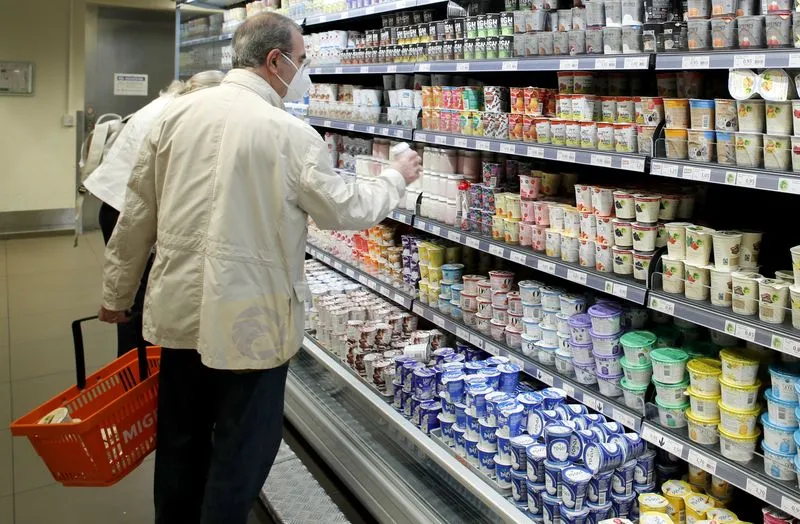简体中文
繁體中文
English
Pусский
日本語
ภาษาไทย
Tiếng Việt
Bahasa Indonesia
Español
हिन्दी
Filippiiniläinen
Français
Deutsch
Português
Türkçe
한국어
العربية
Swiss inflation in June tops 3%, highest since 2008
Abstract:Swiss consumer prices rose 3.4% in June, more than economists had expected and the first time inflation in Switzerland has topped 3% since July 2008.

Swiss consumer prices rose 3.4% in June, more than economists had expected and the first time inflation in Switzerland has topped 3% since July 2008.
The reading was the fifth month in a row that prices have risen above the central bank's target for price stability.
Prices rose 0.5% versus May as fuel, heating oil and vegetables became more expensive. Prices for red wines and salads decreased.
Swiss prices had increased in May by their highest level in nearly 14 years. The consumer price index rose by 2.9% compared with a year earlier as transport, food and drinks became much more expensive in a country noted for its historically low inflation.
Ongoing inflationary pressure means further monetary policy tightening will likely be needed, Swiss National Bank Chairman Thomas Jordan said last month after the central bank raised its interest rate for the first time in 15 years.
“We published a new inflation forecast. If you interpret it correctly, you see that there's a certain need probably to tighten further,” Jordan told a conference in Zurich.
For more Forex news, please download WikiFX- the Global Forex Regulatory Inquiry APP.
Disclaimer:
The views in this article only represent the author's personal views, and do not constitute investment advice on this platform. This platform does not guarantee the accuracy, completeness and timeliness of the information in the article, and will not be liable for any loss caused by the use of or reliance on the information in the article.
Read more

Why Fed Keeps Interest Rates Unchanged, How Does It Affect To Forex Market?
Fed keeps interest rates at 4.25%–4.50%, impacting forex market. Dollar may rise as tariffs loom. Explore why rates unchanged and forex effects.

Do Tariffs Refueling Inflation? Understanding the Connection
Investigate how tariffs impact inflation. Learn how trade barriers influence prices and the broader economic landscape.

Will Trump's Trade Policies Fuel Inflation? BlackRock Warns of Economic Risks
Bitcoin and crypto prices plummet as recession fears and inflation warnings shake markets. Experts warn of prolonged economic challenges ahead.

How Will Central Bank Digital Currencies Could Shape Everything?
Central bank digital currencies (CBDCs) could reshape financial stability, addressing inflation, banking risks, and monetary policy challenges.
WikiFX Broker
Latest News
The Withdrawal Trap: How Scam Brokers Lure Victims into Paying More
FCA to Investors: Think Twice Before Trusting These Brokers
Trump\s tariffs: How could they affect the UK and your money
Trump gambles it all on global tariffs he\s wanted for decades
TradingView Brings Live Market Charts to Telegram Users with New Mini App
Trump tariffs: How will India navigate a world on the brink of a trade war?
Interactive Brokers Launches Forecast Contracts in Canada for Market Predictions
Authorities Alert: MAS Impersonation Scam Hits Singapore
Stocks fall again as Trump tariff jitters continue
IG Group Acquires Freetrade for £160M to Expand UK Investment Market
Currency Calculator







